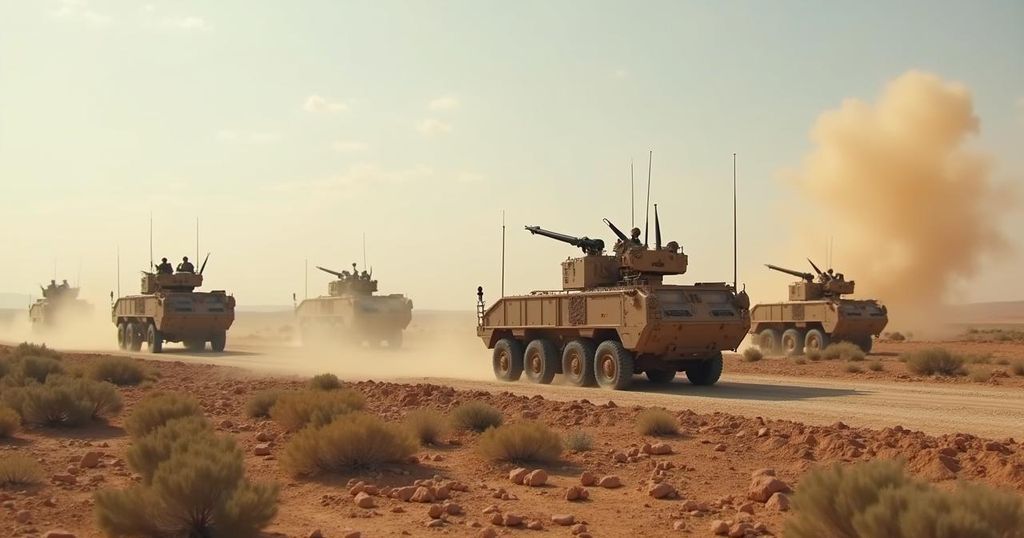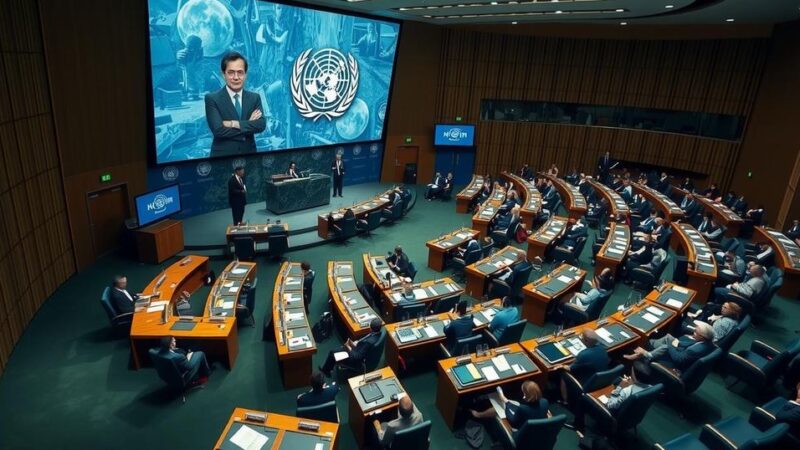The United States has announced the deployment of a Thaad missile system to Israel in light of escalated tensions between Israel and Hezbollah, marked by a deadly drone attack that killed four Israeli soldiers. Israeli Prime Minister Netanyahu urges the withdrawal of UN peacekeepers from Lebanon, while the humanitarian impact of ongoing military actions raises serious concerns.
The recent escalation in the Israel-Lebanon conflict has led to significant military developments and alarming humanitarian implications. In response to increasing tensions involving Hezbollah and Iranian forces, the United States has ordered the deployment of a Terminal High Altitude Area Defense (Thaad) missile system to Israel. This decision, articulated by the Pentagon, reinforces the United States’ steadfast commitment to Israel’s defense against potential ballistic missile threats from Iran, particularly following an Iranian warning to refrain from military involvement in Israel. The situation has dramatically intensified, as Hezbollah reportedly launched a drone strike that resulted in the deaths of four Israeli soldiers, along with numerous injuries. This attack was framed as retaliation for prior Israeli airstrikes in Beirut, highlighting the ongoing cycle of violence in the region. Israeli Prime Minister Benjamin Netanyahu has called for the immediate withdrawal of United Nations peacekeeping forces from southern Lebanon, arguing that their presence provides cover for Hezbollah operations while condemning attacks against peacekeepers and warning against potential violations of international law. This critical juncture raises pressing concerns regarding humanitarian conditions, particularly with reports of recent Israeli airstrikes killing civilians in Gaza, including children sheltering in a school. As hostilities continue, key global entities, including the UN, express increasing alarm over the escalation of violence and its devastating consequences for civilians.
The Israel-Lebanon conflict is characterized by recurrent military confrontations primarily between Israel and Iranian-backed militant groups, such as Hezbollah. The geopolitical landscape has been shaped by various incidents, including missile strikes and military responses from both sides. This ongoing situation not only threatens regional stability but also endangers civilian populations caught in the crossfire. Recent events underscore the heightened volatility in the region, particularly following the commencement of Israel’s military operations in Gaza and the increased activity from militant groups in Lebanon. The deployment of the Thaad missile defense system by the United States signifies a strategic military response aimed at protecting Israel from aerial threats, while the international community grapples with the humanitarian fallout stemming from continued hostilities.
In summary, the situation in Israel and Lebanon remains exceedingly precarious as military exchanges intensify, raising alarm over the protection of civilians and the potential for broader conflict. The United States’ deployment of advanced missile defenses reiterates its unwavering support for Israel amidst escalating regional tensions, while condemnation of attacks against UN peacekeepers indicates growing concerns over potential breaches of international law. The humanitarian implications are dire, emphasizing the urgent need for diplomatic intervention to de-escalate violence and protect civilian lives.
Original Source: www.independent.co.uk






